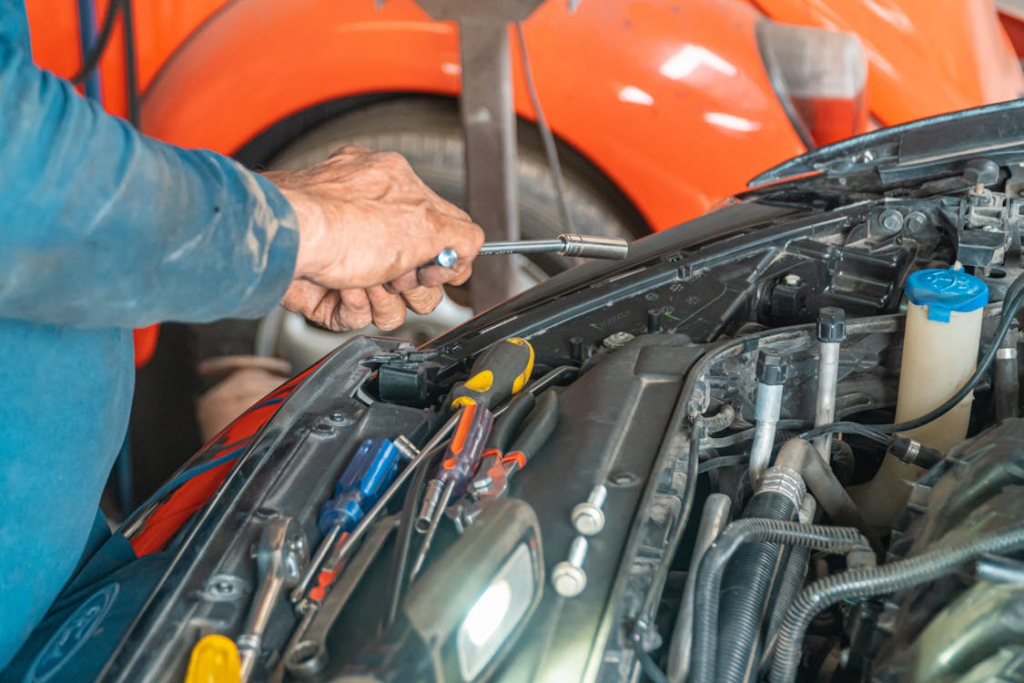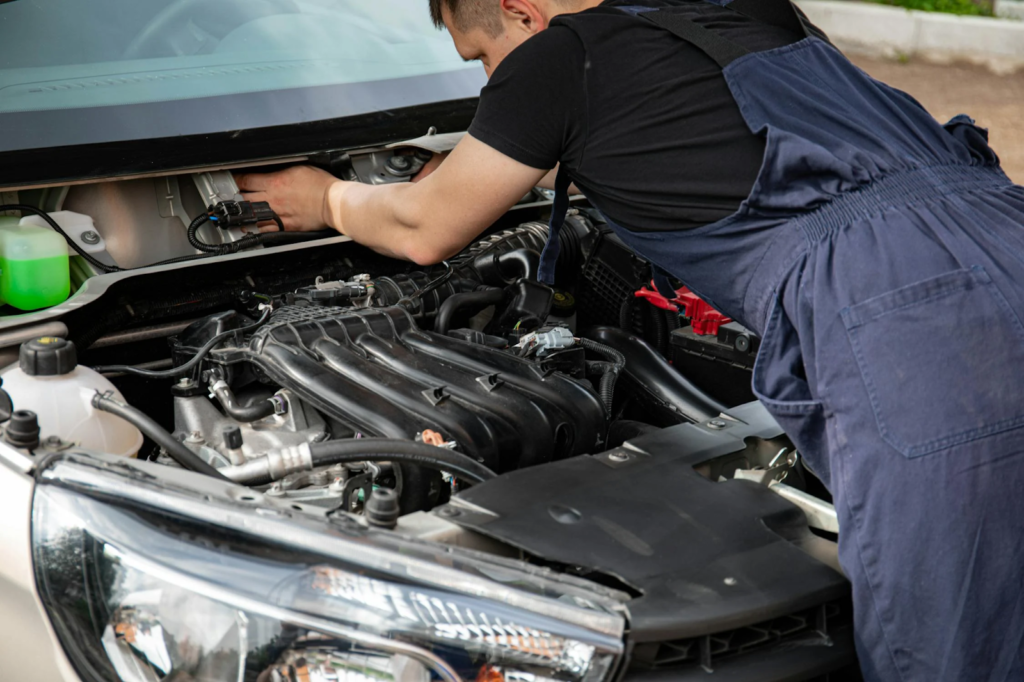Transmission Troubles: Common Issues and When to Seek Help
Your car’s transmission is one of its most essential components. It’s the part that helps shift gears smoothly and ensures power from the engine reaches your wheels properly. When it’s working as it should, you probably don’t think much about it. But when something goes wrong, it can quickly turn your daily drive into a stressful situation.
Understanding the signs of transmission trouble—and knowing when to seek professional help—can save you from costly repairs and unexpected breakdowns. In this guide, we’ll explore the most common transmission issues, what causes them, how to recognize the warning signs, and why acting early can make all the difference.

What Exactly Does a Transmission Do?
Let’s start with the basics. Your transmission is like your car’s middleman. It takes the power created by your engine and delivers it to the wheels through a system of gears. Whether your vehicle is automatic or manual, the transmission is what allows you to shift speeds, go uphill, cruise on the highway, and reverse out of a parking spot.
A well-functioning transmission ensures smooth acceleration and efficient performance. When something goes wrong, though, your entire driving experience can suffer—and ignoring those issues can lead to complete transmission failure.
Common Transmission Problems and What They Mean
1. Slipping Gears
Ever felt like your car hesitated or shifted unexpectedly while driving? That’s often due to slipping gears. This means your transmission isn’t staying in the proper gear or is struggling to switch between them. You might notice the engine revs increase without a corresponding boost in speed.
What it means: Worn-out transmission bands or clutch problems. In automatic transmissions, it could indicate low or degraded transmission fluid.
Why it matters: Slipping gears reduce control over your vehicle and can quickly escalate into more severe mechanical issues if left unchecked.
2. Delayed or Rough Shifting
Shifting gears should be smooth and almost unnoticeable in a healthy transmission. If you experience a delay when switching from park to drive, or if the shift feels jerky or clunky, you’re likely dealing with transmission trouble.
What it means: Could be due to worn gears, low fluid, or electronic sensor problems.
Why it matters: Rough or delayed shifting puts extra strain on your transmission and can damage other drivetrain components over time.
3. Transmission Fluid Leaks
Transmission fluid is crucial—it keeps everything cool and lubricated. If you spot bright red or brown fluid pooling under your car, it’s a clear sign something’s wrong.
What it means: Leaks often stem from damaged seals, cracked fluid lines, or a failing transmission pan gasket.
Why it matters: Low fluid levels can lead to overheating, gear slippage, and, ultimately, total transmission failure.

4. Burning Smell
That distinct burning odor while driving? It might be your transmission telling you it’s overheating.
What it means: Often caused by low or dirty transmission fluid, which can no longer keep the transmission cool or lubricated.
Why it matters: An overheated transmission wears out faster and risks a complete breakdown if not serviced promptly.
5. Unusual Noises
A whining, buzzing, or clunking noise when your car shifts gears isn’t just annoying—it’s a red flag.
What it means: Noises can indicate worn bearings, planetary gear damage, or even internal fluid starvation.
Why it matters: Strange sounds are often one of the earliest warnings of transmission trouble. Ignoring them could lead to costlier damage.
6. Check Engine Light
The check engine light doesn’t only signal engine trouble—it can also mean your transmission is having issues.
What it means: Modern vehicles use sensors that monitor your transmission’s performance. When they detect abnormal data, the check engine light may turn on.
Why it matters: While it might not feel urgent, the check engine light is your vehicle’s way of saying “get this looked at before it becomes serious.”

When Should You Seek Professional Help?
Here’s the short answer: As soon as you notice something unusual.
Too often, drivers ignore small signs because the car still seems to “drive fine.” The problem is, minor transmission issues rarely stay minor. Acting early can be the difference between a minor repair and a full rebuild or replacement—which can cost thousands.
Here’s when to head to a professional:
- You notice consistent gear slipping or delays in shifting.
- There’s a visible fluid leak under your vehicle.
- You smell burning while driving.
- Your vehicle makes unusual noises while accelerating or shifting.
- The check engine light comes on and stays on.
And if you’re unsure? It’s always better to get a diagnostic check. At Vancouver Auto Centre, we use advanced diagnostic tools to pinpoint issues accurately and give you a clear, honest explanation of what’s going on.
How to Prevent Transmission Problems
While some transmission issues are unavoidable due to wear and tear over time, a lot of them can be prevented with good habits and regular maintenance.
Here are some smart practices:
- Check transmission fluid regularly – Low or dirty fluid is the #1 cause of transmission damage.
- Service your transmission on schedule – Follow your vehicle’s maintenance guide or ask your mechanic.
- Don’t ride the brakes or rev excessively – Aggressive driving can stress your transmission.
- Don’t ignore warning signs – Early attention is key to affordable repairs.
- Let your car warm up in winter – Cold fluid doesn’t flow as well, increasing the strain on your transmission early in a drive.
Transmission Repairs: What to Expect
Depending on the issue, your transmission may need anything from a fluid top-up to a full rebuild. Here’s a quick breakdown:
- Fluid change or flush: Inexpensive and quick, helps solve basic slipping or overheating issues.
- Seal or pan gasket replacement: Ideal if there’s a leak.
- Sensor replacement or software reset: Modern transmissions are computerized, and fixing a faulty sensor can restore shifting.
- Clutch or band replacement: Common in worn manual transmissions or older automatics.
- Full rebuild or replacement: Needed only when internal parts are severely worn or damaged. It’s costly—but still better than a total vehicle replacement in many cases.
At Vancouver Auto Centre, we’ll walk you through your options and only recommend what you truly need. No guesswork. No pressure. Just straightforward advice and quality service.
Why Choose Vancouver Auto Centre?
At Vancouver Auto Centre, we don’t just fix cars—we build trust. Founded by Taha, a lifelong car enthusiast, our shop was created to offer something different: a place where you always know what’s happening with your vehicle, and why.
For 15 years, we’ve delivered honest, transparent, and high-quality repairs using the latest tools and techniques. Whether you drive a brand-new car or a classic beauty, we treat your transmission (and your whole vehicle) with the care it deserves.
If your transmission is acting up—or if you just want peace of mind—we’re here to help.
Take Action Before a Small Problem Becomes a Big One
Don’t wait until your transmission fails completely. If something doesn’t feel right, trust your instincts—and let our team take a look. At Vancouver Auto Centre, we’re passionate about keeping you safely on the road with service you can rely on.
Book your diagnostic check today and experience the difference that honesty, expertise, and automotive passion can make.
